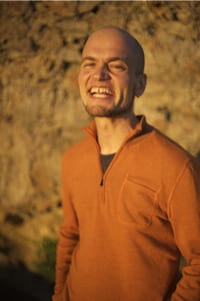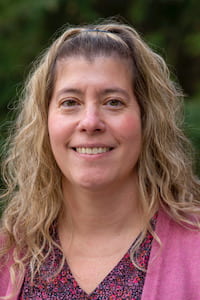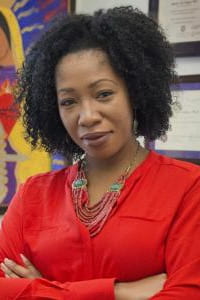Landscapes of Labor Speakers
Edgar Aquino-Huerta — Edgar Aquino-Huerta is a Farmworker Organizer for the non-profit CATA-Farmworkers. He comes from a small town in Puebla, Mexico, called San Nicolas Tolentino, and immigrated to South Jersey in 1998. He is a filmmaker with a focus on screenwriting but also an educator, community organizer, and public speaker focused on telling coherent stories with different scenarios that center around Mexican leads and culture–telling narratives around people of color that are more than social justice/immigration. Edgar contributed to the post-film discussion of Food Chains.
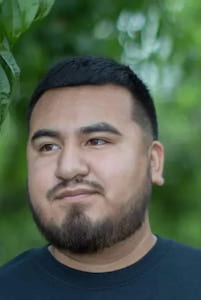
Dr. Mary Bellman — Mary Bellman is the Director of Labor Education and Associate Teaching Professor at Penn State’s School of Labor and Employment Relations. She facilitates educational programs with workers and union members on topics such as globalization, immigration, and popular education. In her fifteen years of labor education, Mary has developed and coordinated several labor leadership programs for labor leaders and especially women. Mary currently serves as the national President of the United Association for Labor Education (UALE) and is an affiliate faculty member of the Center for Global Workers’ Rights at Penn State. After earning her Ph.D. in Political Science from the University of New Mexico, Mary served as program director for a labor solidarity organization based in Central America, learning the craft of labor education while facilitating international exchanges between labor union women. Mary introduced American Factory. She also moderated the post-film discussion of 9to5: The Story of a Movement.
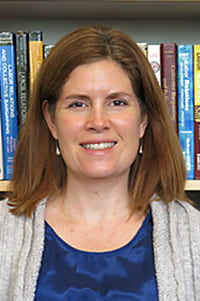
Steven Bognar — Steven Bognar is an independent filmmaker and media arts educator. His first film, Personal Belongings, premiered at the Sundance Film Festival and screened nationally on the PBS series P.O.V. His second film, Picture Day, won Best Documentary Short at the Florida Film Festival, screened at the Sundance Film Festival, in numerous film festivals and at the Guggenheim Museum. His third film Gravel also premiered at Sundance and screens regularly on the Sundance Channel. Bognar is former assistant professor of media arts at Antioch College and has, for the last 15 years, worked as a filmmaker-in-residence in schools throughout Ohio. Bognar’s work has been funded by the National Endowment for the Arts, The Soros Documentary Fund, the Creative Capital Foundation, the Ohio Humanities Council, the Ohio Arts Council and Culture Works. He is also a Rockefeller Fellow. Steven participated remotely in a post-film Q&A about his film American Factory. He also joined us for the post-film discussion of his film 9to5: The Story of a Movement.


Dr. Krista Brune — Krista Brune specializes in modern and contemporary Luso-Brazilian literature through the lens of translation, visual and popular cultures, and intellectual history. Her book Creative Transformations: Travels and Translations of Brazil in the Americas (SUNY Press, 2020) analyzes key moments in the travels and translations of Brazilian artists and intellectuals from the 1870s to the present. Currently, she is working on a book that situates Lisbon, Rio de Janeiro, São Paulo, and New York as sites of encounter and exchange among speakers of Portuguese. Another area of her research centers on Latin American popular music, film, and cultural policies. As a Fulbright grantee to Brazil in 2007, she studied the politics of popular Brazilian music in relation to the nueva canción and nueva trova. For the 2021-22 year, she is the Dorothy W. Gilpatrick University Endowed Fellow in the Humanities. Krista participated in the post-film discussion of Waste Land.

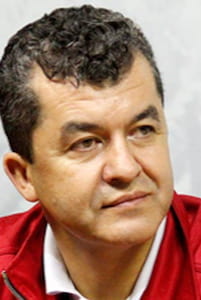
Luis Enrique Mendoza Choque — Luis Mendoza is a labor rights lawyer from Lima, Peru. There, he worked as a trade union attorney and a law professor at the Pontificia Universidad Católica del Perú (PUCP). In the U.S., he got a master’s in labor and Global Workers’ Rights at Penn State, and a master’s in law at the George Washington University. He has volunteered with the Capital Area Immigrants’ Rights Coalition on legal interpretation at detention centers for immigrants in DC area. He worked for UNITE HERE for the midterm election 2022 in Arizona. Luis is an online tutor of the Labour Global University, and an adjunct professor of International Labor Law at Penn State and PUCP. He works for the Center for Global Workers’ Rights. Luis introduced Sleep Dealer and will be introducing the upcoming film series, Labor and Waste.
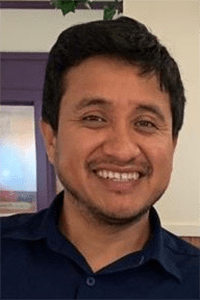
Kimberly Cook — Kim Cook is an extension faculty member for education and training in Cornell University’s Worker Institute and was a leader in the Seattle chapter of the 9to5 movement in the early 1980s. She spent seven years on the road being a union organizer for SEIU and 9to5, before returning to Seattle to work for the local District 925 chapter, which was restructured into a regionally based union. Cook was elected president of what became Local 925 of the Service Employees International Union for 10 years before serving on the SEIU International Executive Board and as international vice-president at SEIU. Kim participated in the post-film discussion of 9to5: The Story of a Movement.
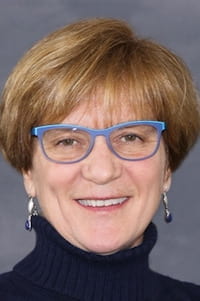
Haoju Lu — Haoju is a Chinese labor rights activist and Graduate Student studying Labor and Global Workers’ Rights in the school of Labor and Employment Relations. Haoju recommended the film Plastic China, which will be screened in the upcoming film series, and has researched the director of the film, Jiuliang Wang, extensively. She will be serving as a panelist for the Waste and Labor Shorts film series, offering insight into labor rights and the film Plastic China in particular.
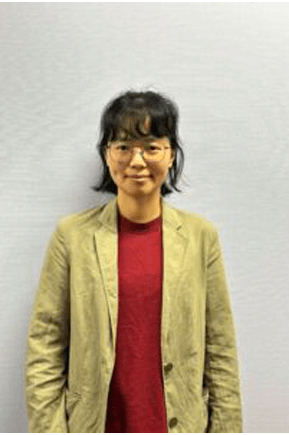
Dr. Charles Lumpkins — Charles Lumpkins is an Assistant Teaching Professor of Labor and Employment Relations and African American Studies at Penn State, from which he also obtained his doctorate in history. Dr. Lumpkins’s research focuses on the history of African Americans with particular interests relating to the history of social and political movements and the history of the working-class. He is the past president of the Pennsylvania Labor History Society and wrote the award-winning American Pogrom: The East St. Louis Race Riots and Black Politics. Lumpkins was involved in union drives when he worked as a paraprofessional in the Harvard University library system and as a librarian at the Maine Maritime Academy. Charles introduced Sorry to Bother You.
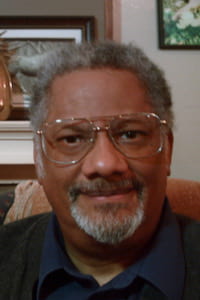
Dr. Katherine Maich — Katherine Eva Maich holds a Ph.D. in Sociology from the University of California, Berkeley, where she was a Berkeley Empirical Legal Studies Fellow at the Center for the Study of Law & Society. Her research and teaching interests include gender and feminist theory, domestic work, law and social policy, ethnography, Latin America, and the Global South. Katherine was recently a Postdoctoral Scholar with the Center for Global Workers’ Rights at Penn State, and her research examines the reproduction of gender and racial inequality, domestic worker organizing, and the home as a site of labor. Her book project, Bringing Law Home: Regulating Domestic Workers’ Rights in Lima and New York City, draws upon more than 18 months of ethnography and 120 in-depth interviews to show how progressive labor laws for domestic workers are stifled by historically-entrenched patterns of colonial and racialized relations. She is the winner of the 2017 Cheryl Allen Miller Paper Award from Sociologists for Women in Society, the 2017 Outstanding Graduate Student Paper Award from the Sociology of Law Section of the ASA, and the 2016 Distinguished Graduate Student Paper Award from the Labor and Labor Movements Section of the ASA. Maich introduced The Second Mother.

Dr. Paolo Marinaro — Paolo Marinaro is a lecturer for the UCLA Labor Center, former researcher with Penn State’s Center for Global Workers’ Rights, and the Country Program Director For the Solidarity Center AFL-CIO in Mexico where he works with Mexican and US unions to empower workers and promote transnational labor solidarity. His research focuses on alternative strategies of labor organizing and the future of workers, with particular attention to Latin America and the U.S.-Mexico border. He also focuses on the relation between global economic restructuring, technological transformation and the impact on working conditions. In particular, he explores issues related to workplace resistance, collective action and trade union practices, centering on alternative strategies of organizing. His research and teaching interests include labor, gender and social movements. Paolo introduced The Organizer and Sorry We Missed You.
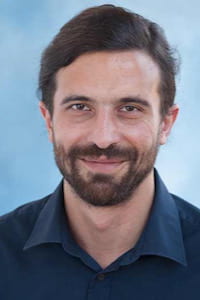
Ayodeji Oluwalana — Ayodeji “Ayo” Oluwalana is Penn State’s first university-wide waste reduction and recycling program manager — an important role in increasing Penn State’s recycling efforts and reducing its overall waste output. Oluwalana joined Penn State after serving as the recycling program manager at Iowa State University. Prior to that, he worked in campus sustainability positions at Western Colorado University, and other higher education roles at Covenant University in Ota, Nigeria. He earned a bachelor’s degree in Environmental Management and Toxicology from the Federal University of Agriculture, Abeokuta and a master’s degree in Environmental Management from Western Colorado University. He is a trained Climate Reality Leader as well as a board member of the College and University Recycling Coalition. He will serve as a panelist in the Waste and Labor Shorts film program.
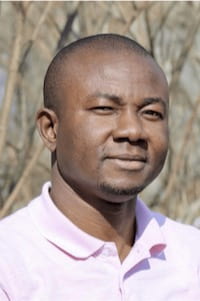
Dr. Jinyoung Park — Dr. Jinyoung Park is a postdoctoral scholar of labor and industrial relations in Penn State’s Center for Global Workers’ Rights. She received her doctorate from Cornell University where she focused on the roles of international actors in building industrial relations systems in Myanmar and Cambodia. She holds an M.A. in Women’s Studies from Ewha Womans University in South Korea. Her master’s thesis analyzed how the gender-sensitivity of trade unions influenced the level of commitment and participation of women workers across several trade unions. An activist as well as scholar, after completing her master’s degree, Park worked for fifteen years as an international feminist labor activist, organizing both domestic and international women workers’ organizations in South Korea and Asia. Jini introduced and participated in the post-film conversation of Cart. She also introduced 9to5: The Story of a Movement.
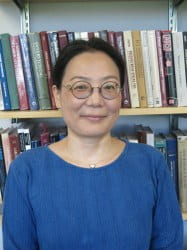
Erika Perez — Erika Perez is the Food Justice Coordinator for the non-profit CATA-Farmworkers. She is the daughter of Peruvian immigrants, granddaughter of farmers, and a native to South Jersey. She received her B.S in Environmental Science at Stockton University. She also interned at the Stockton Sustainable Farm and worked in the fast-food industry during the pandemic. It was around this time that Erika learned that her ancestors were farmers. Joining CATA has allowed her to continue the legacy of growing food for her community and serving the Latinx population. Erika participated in the panel discussion of Food Chains.
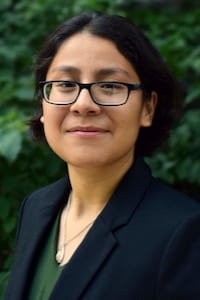
Marta Plumhoff — Marta Plumhoff is the Food Systems Coordinator for the Ross Student Farm at Penn State University. She has an M.S. in Ecosystem Science and Management from the University of Michigan where she served as Outreach Manager for their Sustainable Food Program. At the Ross Student Farm, Marta helps to coordinate educational programming opportunities, working with the Student Farm Club, and also is teaching a course at Penn State focused on Food System Justice. Marta moderated the panel discussion of Food Chains.
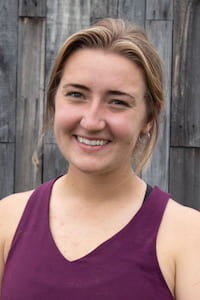
Julia Reichert — Julia Reichert has been called a godmother of the American independent film movement and was a four-time Oscar nominee, winning for American Factory. Her film Growing Up Female was the first feature documentary of the modern Women’s Movement and was chosen for inclusion on the National Film Registry. Her films Union Maids and Seeing Red (with Jim Klein) were both nominated for Academy Awards for Best Feature Documentary, as was the short film The Last Truck. Her film A Lion in the House (with Steven Bognar) premiered at Sundance, screened nationally on PBS, was nominated for the Independent Spirit Award, and won the Primetime Emmy for “Exceptional Merit in Nonfiction Filmmaking”. Julia was co-founder of New Day Films, the social issue film distribution co-op, which is over 40 years old. She was author of “Doing It Yourself,” the first book on self-distribution in independent film, and articles for The Independent, a publication of AIVF. Reichert was Professor Emeritus of Motion Pictures at Wright State University in Ohio and a graduate of Antioch College. Julia participated remotely in post-film Q&A for her film American Factory. She also participated in the post-film discussion of her film 9to5: The Story of a Movement. (Reichert has since passed away in December 2022)

Dr. Manuel Rosaldo — Manuel Rosaldo is an Assistant Professor of Labor and Employment Relations at Penn State University. His research focuses on the potentials and constraints for labor rights organizing among precarious informal workers, who have historically been excluded from both labor rights legislation and labor unions. His PhD at the University of California at Berkeley analyzed waste pickers’ struggles to win state recognition and remuneration for their labor in Brazil and Colombia. He also holds a Master’s in Global Affairs from New York University, where he wrote a thesis on the commercialization of microfinance in southern Mexico. His undergraduate thesis at Wesleyan University analyzed binational family relations between immigrant janitors in Connecticut and the family that they left behind in Mexico, Peru, and Chile. He is beginning a project looking at the connections of the labor movement with the climate movement. Previously, he has worked as an organizer and researcher for the UNITE HERE! and SEIU labor unions. Manuel participated in the post-film discussion of Waste Land and will serve as a panelist in the Waste and Labor short films program.
